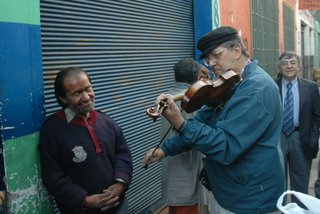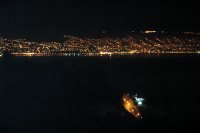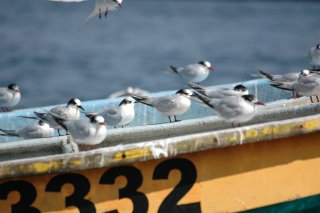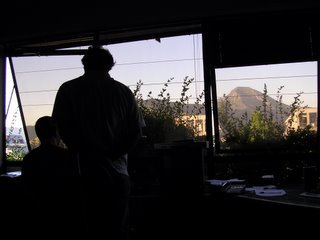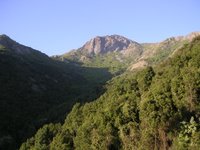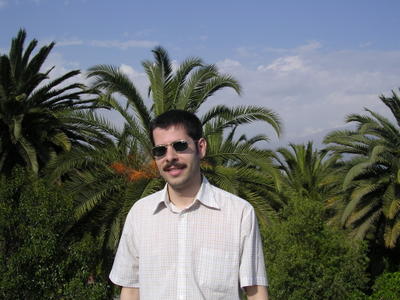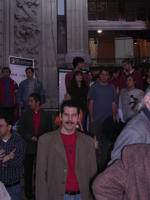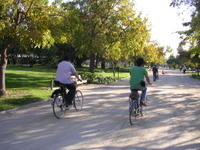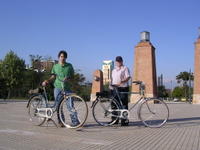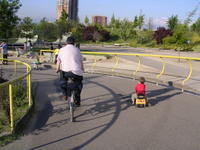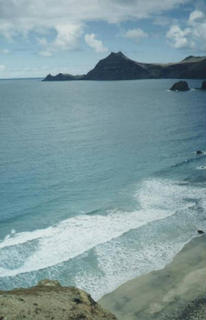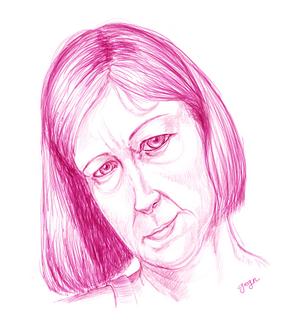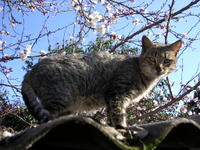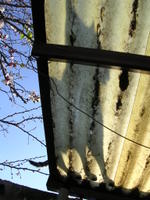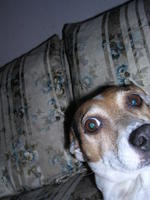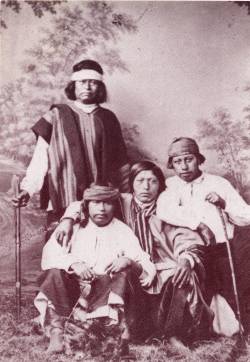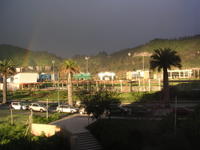The orange and palm trees sway
There's never been such a day
In Beverly Hills, L.A.
But it's December the twenty-fourth
And I am longing to be up north
Who can tell me what follows here?
There's never been such a day
In Beverly Hills, L.A.
But it's December the twenty-fourth
And I am longing to be up north
Who can tell me what follows here?
Chilean Christmas is a deeply religious holiday. Normally, you´ll attend mass at least once on the 24th and 25th. And were talking long bench-sittings. There is music, candles and prayers to the Lord. So far, all is good.
It´s when you enter the shopping centers that things get really perverted. Where to start... The Christmas tree is at least 10 m tall and with enough blinking lights to give blind people epilepsy. It´s surrounded by red carpets and drapings, weird interpretations of the reindeer species, and finally a live Santa, swetting away in full costume as he receives the young consumers-of-tomorrow. To his aid, some petite girls in short Christmas dresses. Add to this the catchy pop/rock versions of Holy Night. Just horrible.
If you for a moment felt swept away by the festive ambient, you´ll be abruptly deprogrammed the moment you step out the automatic doors. Swaying palms, the sun at zenith and reggaeton spilling out from every car around you. Talk about culture clash.
Ok, so the Christmas spirit is totally messed up, but you can lie in a swimming pool all day if you want.
So maybe it´s not so bad after all.

It´s when you enter the shopping centers that things get really perverted. Where to start... The Christmas tree is at least 10 m tall and with enough blinking lights to give blind people epilepsy. It´s surrounded by red carpets and drapings, weird interpretations of the reindeer species, and finally a live Santa, swetting away in full costume as he receives the young consumers-of-tomorrow. To his aid, some petite girls in short Christmas dresses. Add to this the catchy pop/rock versions of Holy Night. Just horrible.
If you for a moment felt swept away by the festive ambient, you´ll be abruptly deprogrammed the moment you step out the automatic doors. Swaying palms, the sun at zenith and reggaeton spilling out from every car around you. Talk about culture clash.
Ok, so the Christmas spirit is totally messed up, but you can lie in a swimming pool all day if you want.
So maybe it´s not so bad after all.



